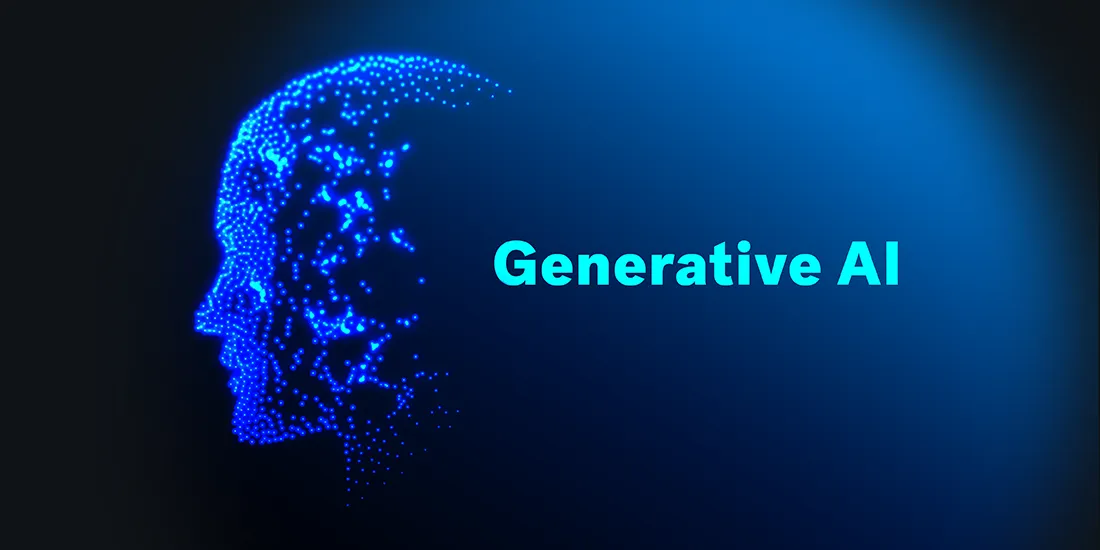8 Real-World Use Cases of Generative AI in Accounting Firms

Generative AI is revolutionizing the accounting industry, streamlining tasks and boosting efficiency for firms of all sizes.
Introduction
The world of accounting is evolving rapidly. Technology drives this change by enhancing efficiency and reducing human error. It also opens new opportunities for growth. Among the most transformative innovations is generative AI, which is already reshaping how accounting firms operate. AI can automate mundane tasks. It analyzes vast datasets. It streamlines complex processes. AI provides accountants with the tools they need to save time and offer more value to clients.
1. Automating Audits for Greater Efficiency
Auditing has always been a time-consuming process, with accountants manually reviewing documents and cross-referencing data. Generative AI changes this by automating document analysis, identifying inconsistencies, and even drafting parts of the audit report.
Firms using AI for audits report a 40% reduction in preparation time. This allows accountants to focus on more strategic tasks. It improves overall productivity.
2. Streamlining Tax Preparation and Compliance
Managing tax filings is one of the most challenging aspects of accounting. With tax laws constantly changing, staying up to date can feel like a full-time job. Generative AI keeps track of regulatory changes in real time and adjusts tax strategies accordingly.
AI-driven tax automation leads to significant time savings, with firms reporting up to 60% less time spent on tax prep. This allows accountants to be more responsive to clients and ensure better compliance.
3. Simplifying Financial Reporting
Financial reporting is a critical yet time-consuming task. With AI, you can automatically generate concise, insightful reports based on raw data. AI pulls out the most relevant information and presents it in a way that is easy to understand for clients.
This has drastically reduced the time spent on report generation and improved client engagement by making reports more accessible and digestible.
4. Enhancing Forecasting and Financial Planning
Accurate forecasting is a key part of financial strategy. Generative AI uses historical data and real-time information to build complex models. These models predict future financial outcomes. They help firms create more accurate forecasts.
AI-driven forecasting helps firms provide clients with smarter financial predictions. These predictions are more reliable. They allow clients to make data-backed decisions with confidence.
5. Generating Proposals Faster
Proposal writing is a critical part of business development in accounting. AI tools automate the creation of proposals, pulling in relevant data and formatting it to match client needs. With AI, firms can create tailored proposals quickly, allowing them to respond to RFPs faster than competitors.
By reducing the time it takes to produce proposals, accounting firms can significantly improve their proposal acceptance rates. They can also win more business.
6. Improving Client Communication with AI Tools
Effective communication is essential for retaining clients and managing expectations. With AI tools, accounting firms can automate client communications such as email updates, tax reminders, and scheduled check-ins. This ensures clients are always informed without requiring manual intervention.
AI-driven communication tools allow accounting firms to save several hours per employee per week, increasing efficiency and improving client relationships.
7. Simplifying Employee Training
Training new staff members can be a resource-heavy process. AI-powered knowledge bases simplify finding quick answers to common questions for junior employees. This reduces the need for senior staff to step in.
AI-based training tools help firms onboard new hires faster and more effectively. These tools enable staff to become productive more quickly. They do so without relying on constant supervision.
8. Automating Payroll and Expense Management
Payroll and expense management are essential but often tedious parts of accounting. With AI, firms can automate these processes, reducing the chances of error while speeding up the entire workflow.
AI integration into payroll systems has helped accounting firms achieve a 35% reduction in payroll errors. It streamlines operations and ensures that payroll runs smoothly every time.
Key Takeaways for Accounting Firms Embracing Generative AI
Generative AI is not just a trend; it is a transformative force in the accounting industry. AI automates repetitive tasks. It reduces human error and speeds up workflows. This allows accounting firms to focus on what truly matters. They can deliver high-value, strategic services to their clients.
AI is enhancing efficiency across various aspects of accounting. It automates audits and tax compliance. It simplifies client communication and improves forecasting. The time saved on manual processes can be reinvested into higher-level tasks, leading to greater profitability and client satisfaction.
Adopting AI tools in your firm doesn’t mean replacing accountants—it means empowering them to be more effective. AI is designed to handle the mundane. This frees up your team to focus on complex problem-solving. They can build client relationships and drive innovation.
The demand for faster, more accurate, and data-driven financial services is growing. Accounting firms that embrace AI will be the ones staying ahead of the curve. Whether you’re just beginning to explore AI or aiming to refine its integration, the potential for growth is enormous. The potential for efficiency and competitive advantage is also huge.





